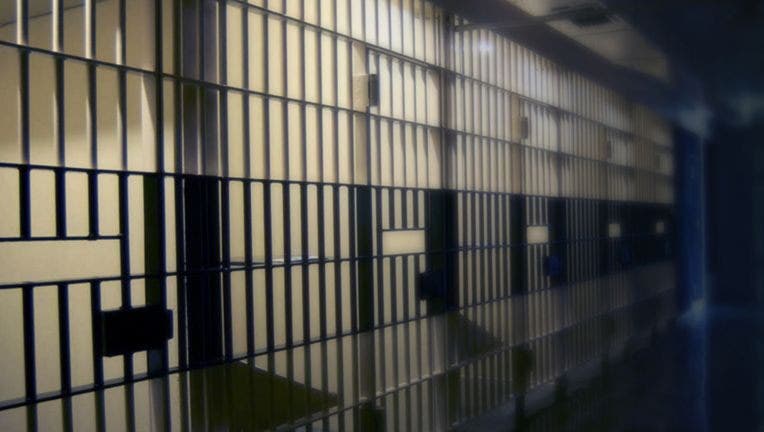Texas House fails to pass automatic bail denial for repeat offenders

AUSTIN, Texas - A proposed amendment to the Texas Constitution that would deny bail to repeat offenders of violent crimes failed in the House Tuesday afternoon.
Senate Joint Resolution 87 fell three votes short of the 100 needed to put the constitutional amendment on the ballot. The measure had support from all Republicans in the chamber at the time of the vote and just nine Democrats.
Senate Joint Resolution 87
The resolution would have automatically denied bail to anyone accused of certain felonies that they had previously been convicted of a felony or were out on bond at the time of the alleged offense.
The amendment would have required judges to find probable cause that the accused committed one of these offenses: murder, capital murder, aggravated assault involving serious bodily injury, aggravated robbery, aggravated sexual assault, indecency with a child, trafficking of persons, or continuous trafficking of persons.
The proposal failed 93-32 in a floor vote Monday.
What they're saying:
Those who supported the motion said it was to make sure high-risk offenders were not released before trial.
They said it would take pressure off of judges who decide bail in high-pressure or violent cases.
"Had this resolution passed two years ago or four years ago, we know for certain lives would've been saved because people would not have been killed by other people out on bond," Rep. Mitch Little said.
The other side:
Those against the resolution argued that it violates a person's right to due process and undermines the presumption of innocence.
They said the amendment would cause more financial trouble for those left in jail if they were later found to be innocent.
"Why not lock up all people accused of crimes indefinitely for fear that they may do something?" Rep. Joe Moody said. "I guarantee a handful of lives will be saved by doing that, too. But at what cost? The cost of our liberty. The cost of the state inflicting immense, life-destroying punishment on people who haven't been convicted of anything."
Texas bail reform
SJR 87 is just one piece of a larger push in the state legislature to reform the bail process in Texas.
Bail reform has been a goal of Gov. Greg Abbott this session.
Last week the House pushed through Senate Joint Resolution 5, Senate Bill 664, Senate Bill 40 and Senate Bill 9.
Senate Joint Resolution 5
SJR 5 would add a constitutional amendment requiring judges to automatically deny bail for violent crimes like murder, rape or human trafficking, "unless there is clear and convincing evidence that the defendant will appear in court and not endanger the community."
Judges who release violent criminals under the new system would be required to explain the decision in writing. Prosecutors would be able to challenge the judges’ bail decisions.
The amendment will be put on ballots in November for a public vote.
Senate Bill 40
Passing on a 113-30 vote, Senate Bill 40 would prevent municipalities from using taxpayer dollars to bail defendants out of jail.
The bill helps ensure that taxpayer funds are used for public safety expenses, like law enforcement, state prosecutors and jail operations.
Senate Bill 9
Senate Bill 9 would prevent a judge from granting a cashless personal bond for certain offenses.
Under the bill, the state could appeal bail decisions if prosecutors felt the amount was insufficient. The rule would keep the defendant in jail for up to 20 days while the appeal is considered.
Texas bail laws
Bond reform has been a priority for Abbott.
Currently, only capital murder suspects are exempt from bonds.
Why you should care:
Because bail is written into the Texas Constitution, it requires a constitutional amendment to alter. That requires a two-thirds vote in both the Texas House and Senate.
Bail reform was one of seven emergency items laid out by the governor earlier this year.
Under the Texas constitution, bail is a right for almost everyone arrested. The exceptions are people charged with capital murder, some people charged with certain repeat felonies or certain instances where bail has been violated in the past.
What is bail?
Dig deeper:
Bail is the amount of money a defendant must pay to be released from jail. The system is used to incentivize the accused to appear for court hearings. The bond, if paid in full by the accused, is refundable if they attend all hearings.
Those that can’t afford to pay the full amount can go through a bail bond company that usually requires a nonrefundable payment of 10% of the total amount. In exchange, the bail bond company guarantees the rest of the amount if the defendant doesn’t appear in court.
Other times, a judge can release a defendant on a personal recognizance bond that does not require any money, on the promise the defendant will appear for hearings.
The Source: Information on the bail reform bills comes from the Texas Legislature and comments made on the House floor. Backstory on Gov. Abbott's bail reform push comes from previous FOX reporting. Backstory on Texas bail laws comes from the Texas Constitution. Bail definitions come from the American Bar Association.

